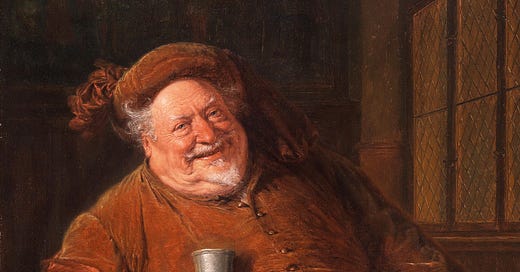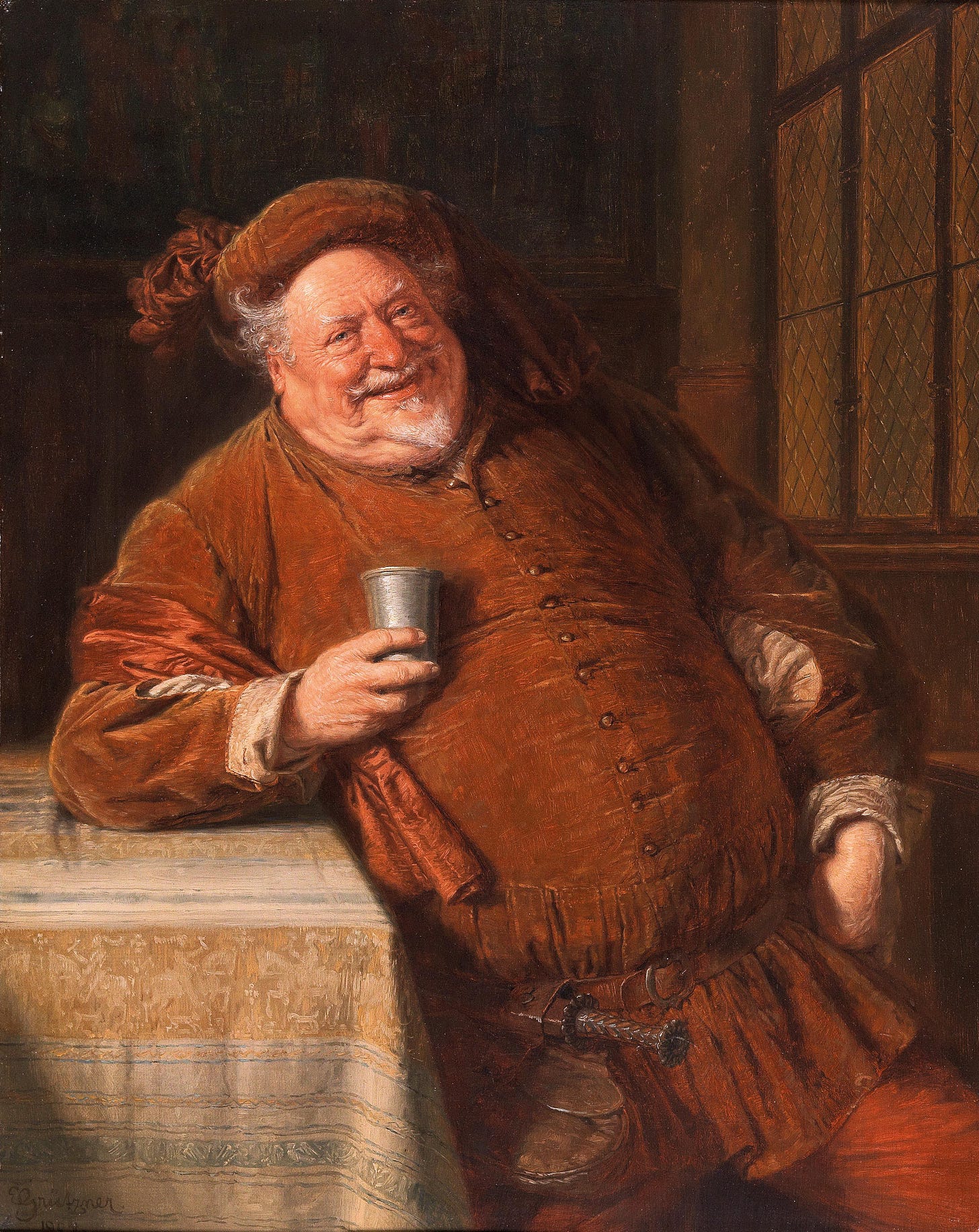William Ashenden is a successful novelist. One day he gets a call from Alroy Kear - a fellow novelist and friend of sorts - who has been asked by Amy Driffield to write the biography of her late husband Edward “Ted” Driffield, a literary titan and old guard from the Victorian era. Unlike the critics and celebrities that surrounded him in his final days, William knew Ted before he was famous, so Alroy has come seeking notes on Ted’s early life, including about his first wife Rosie.
The biography is being written for a lot of selfish reasons. By associating himself with Ted Driffield, Alroy hopes to elevate his standing in the literary world and cement his legacy. And Amy Driffield wants to set the record straight about Rosie, whose working-class origins (barmaid) and sexual promiscuity make her the target of sneer and contempt. No-one is quite sure why Ted married her. Yet William knows Ted wrote his best works while he was with her. And Williams knows what kind of woman Rosie Driffield really was.
From his earliest days in the sleepy Kentish town of Blackstable - before the Driffields became famous in London - the young William Ashenden is cautioned against hanging around them. His caretaker bad-mouths Rosie for her lowly background and poor morals. Yet one night he finds the two inexplicably dining and laughing together. Once Rosie has left, the caretaker asks William not to tell of their encounter, confiding that “she’s been no worse than plenty others, if the truth was only known.” (90).
After reconnecting with the Driffields in London, William Ashenden begins an affair with Rosie. Maugham’s descriptions of her alternate between opulent and indulgent; “She had the serenity of a summer evening when the light fades slowly from the unclouded sky.” (183). Sometimes though, you’d prefer the narrator not to go on so many digressions; fancy being so wound up about Evelyn Waugh that you have a whinge about him while recalling making love to the woman of your dreams.
When he’s not being cock-blocked by Evelyn Waugh, Maugham has a keen eye for those small moments that come to dominate our memory of a time. Describing his first kiss with Rosie, William tells us how it was not “a hurried peck, nor was it a kiss of passion. Her lips, those very full lips of hers, rested on mine long enough for me to be conscious of their shape and their warmth and their softness.” (184) This is just enough to convey the volume of the kiss and its tantalising effect without overdoing it. As they’re leaving the next morning, Ashenden opens the door and the dawn runs to meet them “like a cat leaping up into the steps.” (191). Then his focus turns to the city around him, which he perceives in the way you do after lovemaking, your mind both empty and glowing:
I could not go back to bed. I strolled on till I came to the Embankment. The river had the bright hues of the early morning. A brown barge came down the stream and passed under Vauxhall Bridge. In a dingy two men were rowing close to the side. I was hungry. (191).
Eventually he realises that he is not the only one whom Rosie is seeing. Yet when he brings it up, she doesn’t get angry. “It’s so silly to be fussy and jealous,” she says. “Why not be happy with what you can get? Enjoy yourself while you have the chance, I say; we shall all be dead in a hundred years and what will anything matter then?” It works. Rosie draws him into an embrace, advising him to “take me as I am.” (201-2).
This memory seems to be the most important in the novel. William Ashenden can’t be jealous that Rosie is sleeping with others when he is sleeping with her behind Ted’s back. He recognises the same hypocrisy in himself that he saw in Blackstable. These events taking place just as he is becoming an adult, William is drawn into Rosie’s live-for-the-moment outlook, which shapes his perspectives on life and writing. Musing on the relationship between art and beauty, he remarks:
Beauty is an ecstasy; it is as simple as hunger. There is really nothing to be said about it… that is why the criticism of art, except in so far as it is unconcerned with beauty and therefore with art, is tiresome. All the critic can tell you with regard to Titian’s Entombment of Christ, perhaps of all the pictures in the world which has most pure beauty, is to go and look at it. (123).
Though literary criticism is more waffle than substance, Ashenden throws in his lot anyway with the fame and recognition it brings. To him, longevity is the only measure of a writer’s worth. It is better to be known than unknown, for “posterity makes its choice not from among the unknown writers of a period, but from among the known.” (120). Perhaps he feels this way because of his time with Rosie - the most pleasant, easy-going time of his life - but also from seeing first-hand Ted rise from unknown rascal to respectable writer. Despite being the target of moral outrages, a careful circle of followers (including Amy Driffield) clean up Ted’s public image. Now he is dead, all anyone henceforth will ever know about him will be from his sanitised biography, and not the real circumstances of his life, as only William Ashenden remembers them.
If all that matters is the physical world of sense that one interacts with, then the only thing that matters after death is posterity, which is the impact of the dead upon the living. This is the only way to survive one’s death. Since no-one will be able to know the real Ted - except through what others have written about him - that means Alroy Kear is in control of his legacy. And by supplying the notes for Ted’s early life, so is William Ashenden. Thus, Ashenden wants to tell the world about Rosie - the real Rosie, as she was, not the scapegoat for a past life everyone has chosen to forget.
The title of the book comes from The Twelfth Night: “Dost thou think, because thou art virtuous, there shall be no more cakes and ale?” Despite her infidelity, Ashenden doesn’t think Rosie was a bad person, for she was the kindest and purest and most beautiful woman he ever met. Yet she contradicted everything about the hypocritical morality of the society around her. She had a good heart and a free spirit, and Cakes and Ale is written in just this kind of easy-going manner. It does not take aim at moral sanctimony through spite or anger, but shows - rather than tells - the pure whimsy and wonder of the world as it is, through Ashenden’s delightful musings and reminisces on writing, love, memory, and his friendship with the Driffields. Maugham’s humour shines through all of this and his unfurling of the details of Ashenden’s life is well-paced.
If Ashenden believes in Rosie’s philosophy - that we should enjoy ourselves because nothing will matter once we’re dead - he doesn’t seem to have fully applied it to his own life. While he may have unlearned some of the snobbery into which he was born, he still strikes you as cranky; a common response to being asked to do something or to go have lunch is that he doesn’t want to. This attitude to life has also made it difficult for Ashenden to do what he sees as right. If all that matters is living for the moment - having your cakes and ale - then it is silly to try and appeal to higher beliefs like honour, truth, fidelity, and beauty, which is what Ashenden is doing when he's trying to preserve the authentic memory of Rosie Driffield. He feels embarrassed though:
I have noticed that when I am most serious people are apt to laugh at me, and indeed when after a lapse of time I have read passages that I wrote from the fullness of my heart I have been tempted to laugh at myself. It must be that there is something naturally absurd in a sincere motion, though why there should be I cannot imagine, unless it is that man, the ephemeral inhabitant of an insignificant planet, with all his pain and all his striving is but a jest in an eternal mind. (250).
If you look up anything about Cakes and Ale, the first thing you’ll find out is that the characters are supposedly based on real people. Alroy Kear is Hugh Walpole, a now largely forgotten author (which is all the more stinging in its irony). Ted Driffield is Thomas Hardy. That probably means William Ashenden is supposed to be W(illiam) Somerset Maugham. Does that mean we ought to interpret Ashenden’s thoughts as the thoughts of Somerset Maugham? Should we hold Ashenden’s words against Maugham?
I think that would be a mistake. There is no reason why we have to read the voice of the narrator as the voice of the author himself. Even if you did take that view, Maugham himself would probably agree that you’re overthinking it. Don’t be too serious with this book and you’ll find a great deal to be delighted with. Take it as an instruction manual for how to live your life, and you’ll probably begin to feel like Bishop Walsham How, who burned his copy of Jude the Obscure. Don’t think too hard about it. If you find you can’t help it, you might consider what Ashenden has to say about the author, that they need only write down their thoughts in order to forget them. Unthinking pleasure may have its moral and epistemic limits, but the author is granted an escape from all this through his writing. “He is the only free man.” (268).




